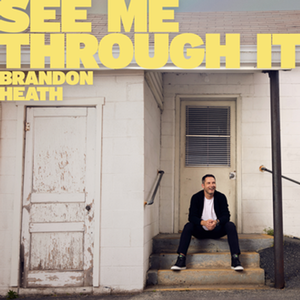Mental Health with Dr. Melissa Mork is a podcast that tells stories of mental illness, resilience, and faith. In each episode, I interview a guest and ask five questions: “What were your symptoms?” “How did you cope?” “What was the diagnosis?” “What treatments helped or didn’t help?” and “How did this experience impact your faith?”
Q&A:
Why are you doing this podcast?
The goal of this podcast is to reduce the stigma of mental illness (especially within the church) by having conversations that normalize the experience. My hope is that, as listeners hear these stories, they become more aware of various mental disorders and how a person might experience a mental illness. I want listeners to recognize symptoms in themselves or others, and I want them to have the resources they may need to access help.
When we don’t understand something, our inclination is to shut it down and not investigate it further. Mental health is a particularly unnerving topic because it is still so poorly understood, particularly in the church. I think the stories that are shared in this podcast are going to create curiosity around mental health. If I hear Alyssa’s story of her eating disorder, or Jackie describe her obsessive-compulsive disorder, or Jason talk about his anxiety and panic attacks, I will want to know more about these disorders. I will research them, read about them, look for more information. And I will be willing to talk about mental health with my friends and family members. The stories will reduce the stigma and open up the conversation.
What do you have to offer to an audience outside of the current listener?
I am professor and former chair of the Department of Psychology, Criminal Justice and Law Enforcement. I teach courses in mental health, counseling, and positive psychology.
I provide keynote presentations around the country on topics of mental health, grief, and self care. I published a book called “Navigating Grief with Humor” and recently contributed a chapter to Chicken Soup for the Soul “Grieving, Loss and Healing: 101 Stories of Courage and Moving Forward.”
What would you like the audience to take away from listening to this podcast?
I want the audience to recognize that mental illness is very much like physical illness. Every person experiences occasional health issues at varying levels of intensity, from the common cold to terminal cancer. Similarly, we will all experience something from a mild case of the blues to full-blown suicidal ideation. The milder forms of illness are inconveniences, while the more severe forms can be quite disabling and even deadly.
One of the things that will become apparent to the audience is that, just as physical illness can affect our faith, so can mental illness. We pray for healing, but we also seek professional help and wisdom in treating it. Medications might be a viable response in treating the disorder. Talk therapy and other interventions are almost always part of the story of recovery and healing in these episodes, as well.
I also want listeners to learn how to advocate for themselves and their loved ones in mental healthcare, and I hope to offer resources so listeners can find useful information and access to help.
What would you like your audience to take away after listening to one episode?
After one episode, I want the listener to say, “Wow, that guest was a remarkable person! What a great story!” I want the listener to ask themselves, “I wonder if my sister/coworker/neighbor/friend/the-lady-at-the-dog-park might want to hear this episode because it sounds a lot like what they’ve been going through!”
Most of all, I want the listener who resonates with the story to pursue greater mental health and healing as a result of hearing the podcast.
What would you like viewers to take away from listening to this podcast in the long term?
This is a great question as it juxtaposes with the one before it. I want the long-term listeners to develop a vocabulary around symptoms and diagnoses. I want them to see the nuances of how one disorder can affect a person in a number of ways. For example, one guest with Post Partum Depression will describe her experience very differently from another because her symptoms manifested in a different way from another guest’s symptoms.
I also want listeners to recognize that there is no stigma around mental illness. This is something we can talk openly about. We can commiserate with the pain and confusion that comes with the onset of symptoms. We can celebrate the skills, gifts, and resilience that comes out of the struggle of mental illness. We can cheer for the person with ADHD because we can see the superpowers that come along with it. We can acknowledge that, as people of faith, we can still be vulnerable to mental illness and can trust mental health professionals to have the skills and abilities to help us through it. Finally, I want them to see that God is present in all parts of a mental health story.












